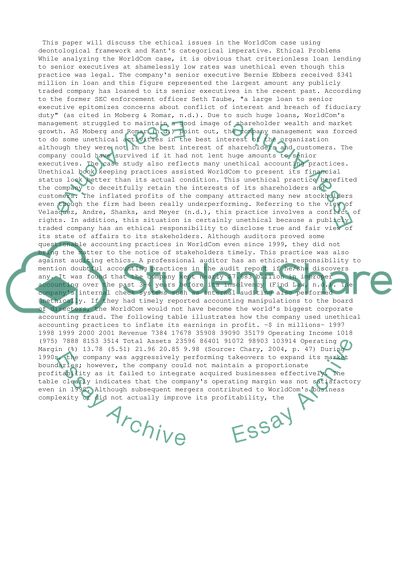Cite this document
(“Deontological Framework and Categorical Imperative: WorldCom Essay”, n.d.)
Deontological Framework and Categorical Imperative: WorldCom Essay. Retrieved from https://studentshare.org/management/1456033-world-com
Deontological Framework and Categorical Imperative: WorldCom Essay. Retrieved from https://studentshare.org/management/1456033-world-com
(Deontological Framework and Categorical Imperative: WorldCom Essay)
Deontological Framework and Categorical Imperative: WorldCom Essay. https://studentshare.org/management/1456033-world-com.
Deontological Framework and Categorical Imperative: WorldCom Essay. https://studentshare.org/management/1456033-world-com.
“Deontological Framework and Categorical Imperative: WorldCom Essay”, n.d. https://studentshare.org/management/1456033-world-com.


